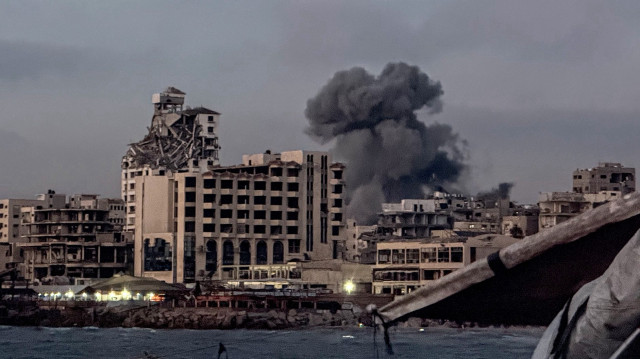
'Hospital is operating at minimum capacity and has been forced to reduce services to preserve fuel for critical care,' says spokesperson
The World Health Organization (WHO) on Friday warned that 13 intensive care patients at Gaza's Shifa Hospital are at risk as fuel supplies run critically low, pushing the health system closer to collapse.
"Health system in Gaza is on its knees amid shortages of medical supplies, fuel and influx of injuries," WHO representative in the Occupied Palestinian Territory said at a UN press briefing in Geneva.
Noting that no fuel has entered the Palestinian enclave for more than 120 days, leaving hospitals barely operational, Richard Peeperkorn said that WHO delivered 3,000 liters of fuel to Shifa Hospital this week to sustain critical services, but conditions remain dire.
"Lack of fuel is crippling Shifa Hospital, compounded by a stream of never-ending injuries," Peeperkorn said. "The hospital is operating at minimum capacity and has been forced to reduce services to preserve fuel for critical care."
"There are 13 patients in the ICU dependent on life-support, which will be cut off if power runs out," he said, stressing that beds are full, and patients are once again being treated on the floor.
He also urged the "senseless killing" in Gaza to stop and said that multiple attacks in recent days hit sites hosting hungry displaced people and people trying to access food, killing and injuring scores of Palestinians.
Since October 2023, an estimated 90 people have been killed and more than 200 others injured daily in Gaza, he stressed.
At Nasser Medical Complex, now functioning as a trauma ward, WHO staff witnessed young patients being shot while seeking food, according to the representative. Among them was a 13-year-old with a head wound, and two others, aged 16 and 21, paralyzed after spinal injuries.
WHO also reported a concerning surge in meningitis cases among children, worsened by overcrowding, poor hygiene, and disrupted vaccinations, Peeperkorn said.
Hospitals lack tests to distinguish viral from deadly bacterial meningitis, risking misdiagnosis and straining limited antibiotic supplies.
"Hospitals cannot manage without fuel, supplies, or peace," he concluded.







